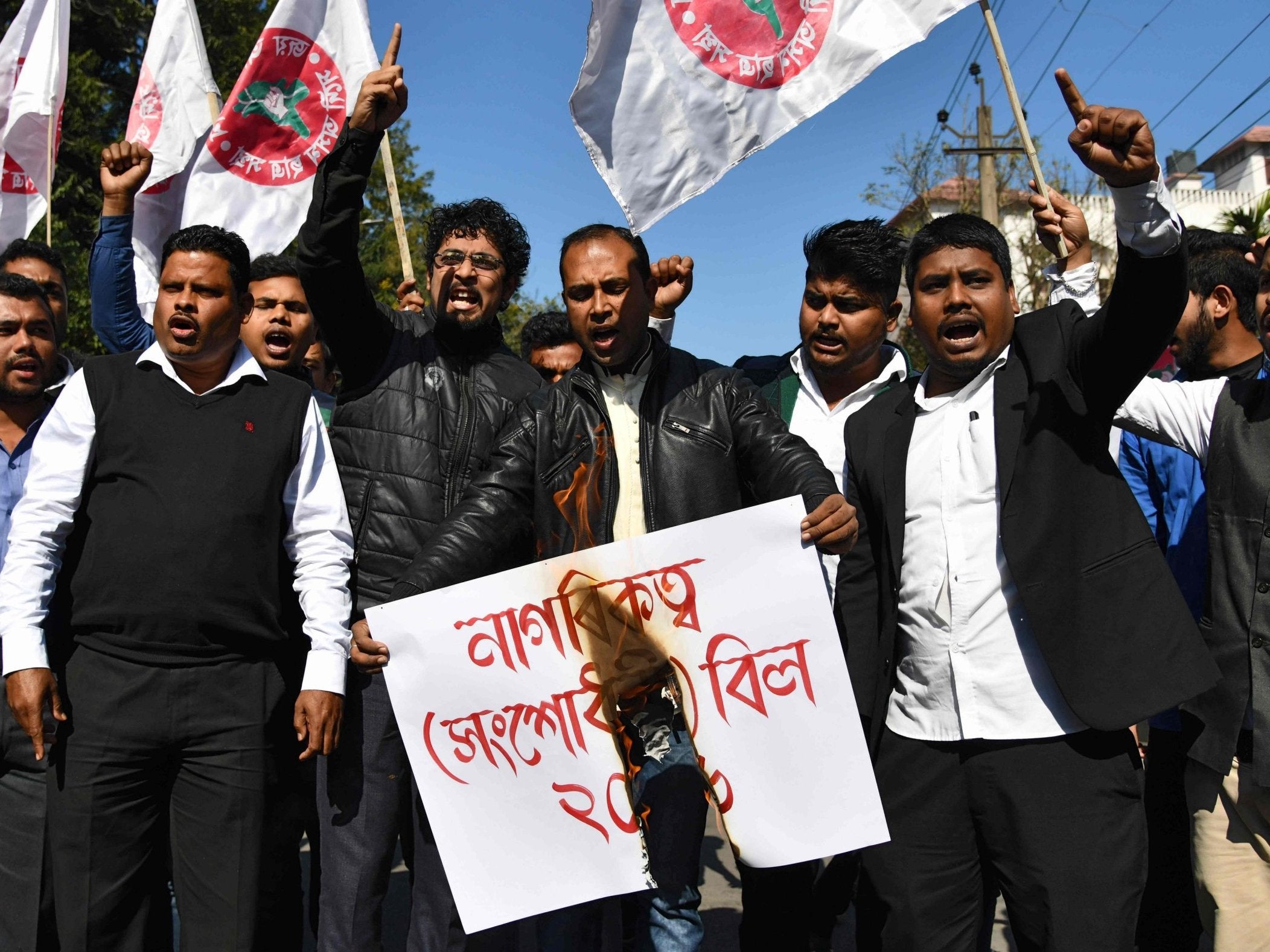India invites non-Muslim refugees to become citizens, sparking protests ahead of crunch election
Critics say Citizenship Amendment Bill is blatantly anti-Muslim

Your support helps us to tell the story
From reproductive rights to climate change to Big Tech, The Independent is on the ground when the story is developing. Whether it's investigating the financials of Elon Musk's pro-Trump PAC or producing our latest documentary, 'The A Word', which shines a light on the American women fighting for reproductive rights, we know how important it is to parse out the facts from the messaging.
At such a critical moment in US history, we need reporters on the ground. Your donation allows us to keep sending journalists to speak to both sides of the story.
The Independent is trusted by Americans across the entire political spectrum. And unlike many other quality news outlets, we choose not to lock Americans out of our reporting and analysis with paywalls. We believe quality journalism should be available to everyone, paid for by those who can afford it.
Your support makes all the difference.India‘s lower house of parliament has approved a bill that would give citizenship to non-Muslim immigrants, leading to protests that brought the country’s northeast to a standstill.
Critics say the Citizenship Amendment Bill is blatantly anti-Muslim and an attempt by prime minister Narendra Modi‘s Hindu nationalist Bharatiya Janata Party (BJP) to boost its votes among Hindus ahead of a general election due by May.
But Home Minister Rajnath Singh denied the bill, which he introduced and must now pass the upper house, was discriminatory.
It would give citizenship rights to Hindus, Sikhs, Jains, Buddhists, Christians and Parsis and several other non-Muslim religious groups who allegedly migrated to India illegally from Afghanistan, Pakistan and Bangladesh.
“They have no place to go except India,” Mr Singh told parliament. “The beneficiaries of the bill can reside in any state of the country.”
It sparked protests in Assam, where residents have complained for years that immigrants from Bangladesh have put a strain on resources.
Demonstrators set up blockades with burning tyres and vandalised two BJP offices, disrupting traffic and businesses for much of the day.
Police used tear gas to disperse crowds. Assam police spokesman Mukesh Agarwal said more than 700 demonstrators were arrested.
Protest organiser Samujjal Bhattacharya, a leader of the All Assam Students Union, said the legislation would confer citizenship on the basis of religion, violating India’s secular constitution.
He also said providing residency and citizenship rights to migrants from Bangladesh, with which Assam state shares a long open border, would threaten indigenous communities.
“Already, we have a whole lot of Muslim migrants from Bangladesh who entered Assam illegally over the years,” Mr Bhattacharya said. “Now, the government is trying to make a law seeking to confer citizenship to Hindus from Bangladesh. We want all illegal migrants to be detected and deported, irrespective of their religion.”
The issue of illegal immigration from Bangladesh has spurred periodic public uprisings in Assam since the Indian government granted rights to Bangladeshis who entered the country after winning independence from Pakistan in a 1971 war.
Mr Singh tried to reassure Assam it would not have to bear any burden alone. ”The burden of those persecuted migrants will be shared by the whole country. Assam alone should not have to bear the entire burden,” he said.
However, the bill is unlikely to pass the upper house of parliament, which isn’t controlled by the ruling party. But even if it isn’t passed, the government could pass an ordinance that wouldn’t require the approval of politicians.
Members of religious minorities often face discrimination and sometimes violence at the hands of militant members of Muslim majorities, particularly in Pakistan and Afghanistan.
Additional reporting by agencies
Join our commenting forum
Join thought-provoking conversations, follow other Independent readers and see their replies
Comments